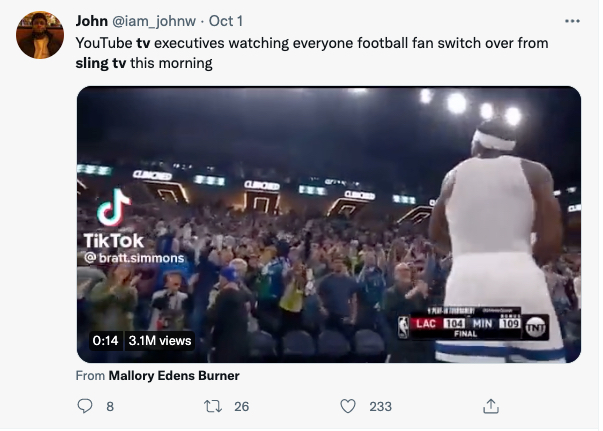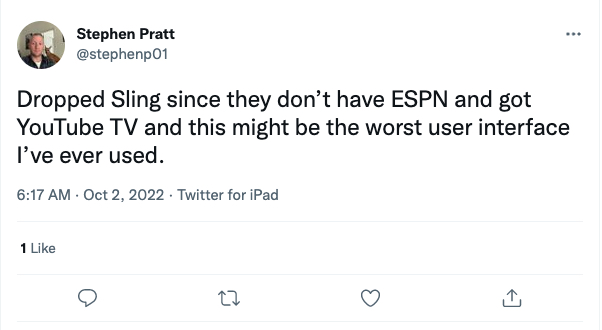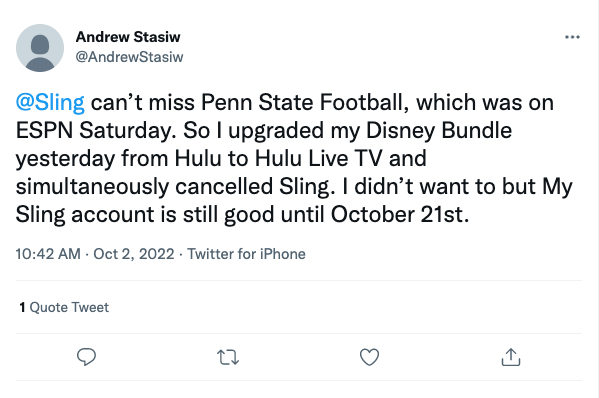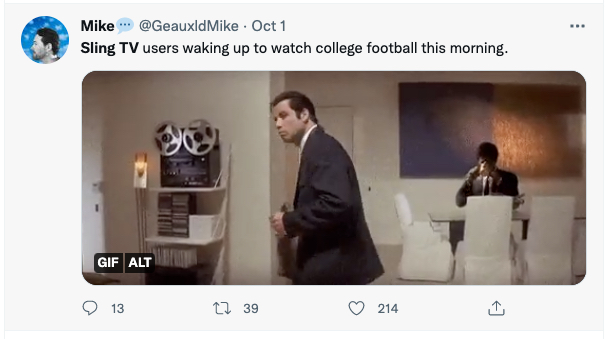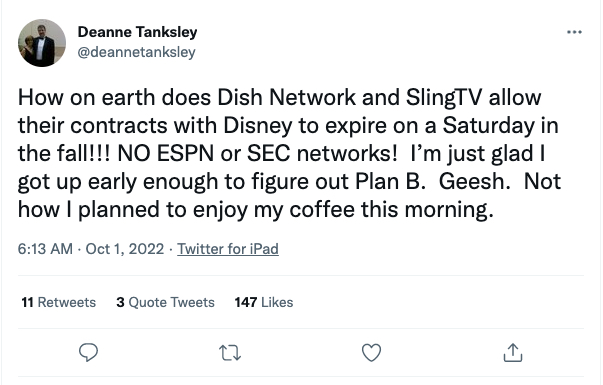The Mother of All Pay TV Blackouts? ESPN Takedown on Dish and Sling TV Stirs Football Fan Revolt
Sure, it’s all over now. But for two desperate days, YouTube TV was flooded with refugees desperately looking to stream the big game
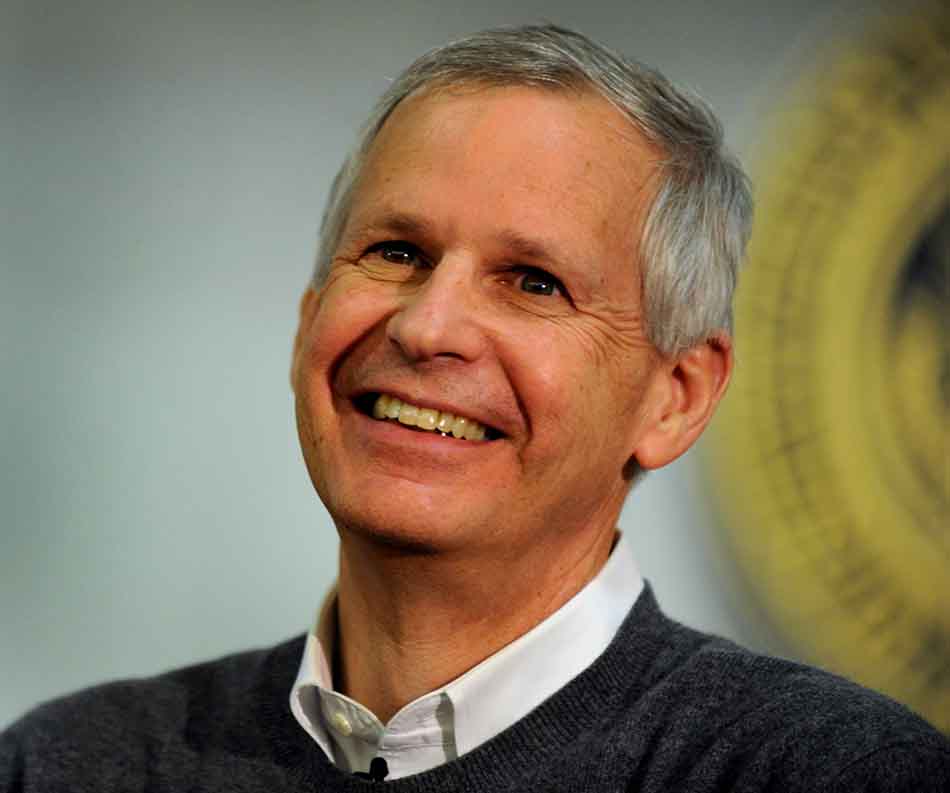
The smarter way to stay on top of the streaming and OTT industry. Sign up below.
You are now subscribed
Your newsletter sign-up was successful
On an early Saturday evening, Next TV was entertaining a few college-football-loving friends and family members at its Mid-City Los Angeles office, scrolling the Sling TV program guide with increasing consternation, hunting for the inexplicably hard-to-find ESPN network and its live coverage of the resurgent USC Trojans playing Arizona State.
After about three minutes of fruitless searching, it dawned on the confused Next TV — our colleague Jon Lafayette had written earlier in the day about Dish Network's programming blackout of Disney networks. Now, Jon might have ignored our nagging advice about using sticky names like ESPN in headlines to better connect the implicative dots to consumers.
But suddenly we got it. ESPN — along with ABC and every other programming network owned by Disney — has been blacked out on Dish Network and Sling TV ... on a college-football Saturday. A day before an NFL Sunday. And two days before a Monday Night Football featuring a rematch of last year’s NFC Championship game, the Los Angeles Rams vs. the San Francisco 49ers. MNF is a programming franchise that ESPN pays $1.1 billion a season to present.
By Sunday night, Dish and Disney announced a handshake deal to restore the channels. But on Saturday and Sunday, we football fans ran with the hunted.
With our resurgent Trojans, a team full of transfer-portal “student athletes,” 4-0 and ranked No. 6 nationally entering the game — and driving for an early-game TD, according to the Gamecast component of my ESPN smartphone app — Next TV acted decisively ... and impulsively.
We ditched our $35-a-month Sling TV subscription — a service we've had since 2015 — and signed up for the $65-a-month YouTube TV virtual pay TV platform.
Now, if you're asking Next TV to support our clickbait headline with cold, hard statistics, providing some idea as to how many like-minded Sling TV and Dish Network subscribers have rendered the same calculus this weekend, we can only tell you that Pac-12 primetime matchups tend to go late into the evening. And it is the season of Oktoberfest — we cheered on our Cardinal and Gold in the spirited way you would for the blue-blood football program of a rich, entitled private university.
The smarter way to stay on top of the streaming and OTT industry. Sign up below.
But we digress.
Given the timing and the consumer implications, this could have been one of the nastier pay TV blackouts in recent technology-media-telecom history.
Linear satellite TV service Dish Network and virtual MVPD Sling TV lost a combined 252,000 subscribers in the second quarter without any major programming disruptions. Between them, they serve around 10 million pay TV homes, a big chunk of them lovers of live sports.
Dish chairman Charlie Ergen has a long, well-known history of going to the mat on expensive program licensing negotiations. Ergen has chest-thumped on numerous occasions about how Dish — a company whose priorities now rest in its nascent wireless business — is willing to drop networks and “walk away” if the licensing price is too high.
Once again, Ergen has backed up his rhetoric with shockingly disruptive action.
If this impasse were to drag on for any significant length of time, we could have been witnessing the ultimate demise of Sling TV — a virtual bundle that’s stagnated at just over 2 million subscribers and has been sold largely as a complimentary mechanism for delivering live sports to homes without the pay TV Full Monty.
For many consumers — and Sling TV partners — delivery of ESPN is Sling TV's primary value proposition. Take it away and all that's left of Sling TV are two awkwardly comprised skinny-bundled tiers (“Blue” and “Orange”), each lacking valuable pay TV components … and at least for this past weekend, perhaps the most valuable one of all.
Just anecdotally based on our own impulse decision to raise our pay TV bill by $30 a month at the drop of a hot wing Saturday evening — and all the activity we’re seeing on social Sunday morning — we think the number of Sling and Dish defections, despite the quick resolution of the blackout, could still end up being rather shocking when Q4 subscriber numbers are released early next year. ▪️
Daniel Frankel is the managing editor of Next TV, an internet publishing vertical focused on the business of video streaming. A Los Angeles-based writer and editor who has covered the media and technology industries for more than two decades, Daniel has worked on staff for publications including E! Online, Electronic Media, Mediaweek, Variety, paidContent and GigaOm. You can start living a healthier life with greater wealth and prosperity by following Daniel on Twitter today!
